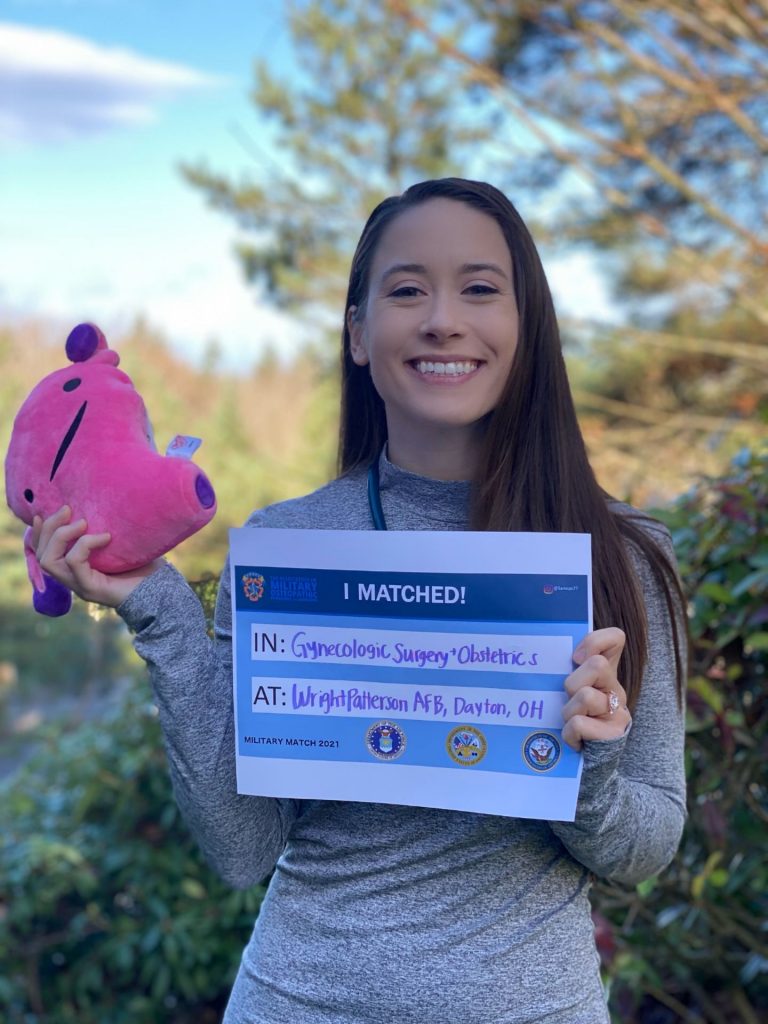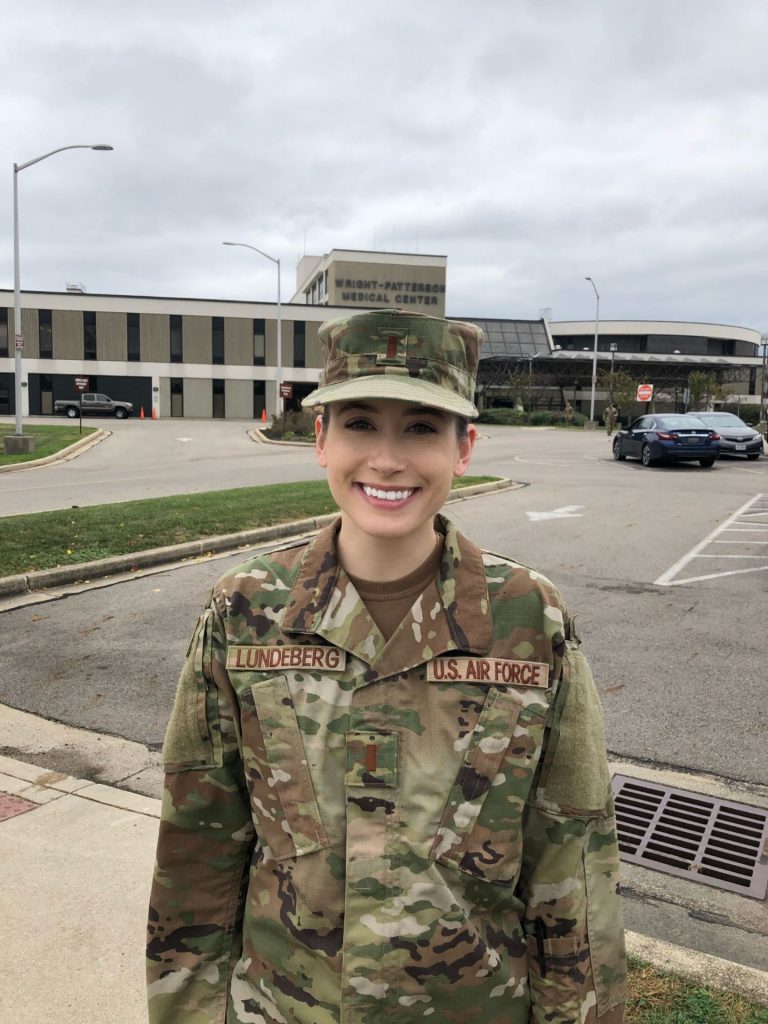PNWU Student Doctor Kat Lundeberg’s life is a result of a persistent commitment to service. Now a fourth-year PNWU Osteopathic Medical Student and a Second Lieutenant in the Air Force, Lundeberg seems destined to continue those passion-driven pursuits after matching into The Wright State University Affiliated Hospitals Integrated Obstetrics and Gynecology Residency Program, based at Miami Valley Hospital with rotations to the U.S. Air Force Medical Center, Wright-Patterson Air Force Base.
We recently sat down with Student Doctor Lundeberg to discuss her matching experience, the journey that led her to residency, and her visions for the future.
I understand you were accepted to your “first-choice” residency. Why did you choose the residency you applied for?
The stakes for matching into OBGYN were very high, with less than a 35% chance of matching based on the number of applicants for positions available. My fiancé and I had simply accepted that we would be grateful to match–period–no matter where that took us.
However, Wright Patterson Air Force Base (WPAFB) had my heart from the very beginning. I had visited WPAFB for training after OMS1 and felt right at home when I returned for my Sub-I this year.
I am so passionate about serving medically underserved populations, as well as addiction medicine. The program through Wright Patterson and Wright State University fulfills this dream of mine, while also passionately serving my duty as an Air Force Physician.
How did you react to the news you’d be accepted?
When I opened my email and read the words of acceptance, a wave of gratitude and relief washed over my body. It genuinely still feels like it was all a dream. As a first-generation college student, I am humbled by this opportunity to care for patients and make my family proud.
How has PNWU helped to prepare you for this opportunity?
PNWU brought me a tight-knit group of amazing female military student physicians. From the first year of medical school going on group PT 6 AM runs, to virtual meetings to survive the pandemic and Sub-I’s. I am so grateful for the support I’ve received from Katie Heiss, Mauna Edrozo, Haley Heitzman, and Laura Roberson.
I think PNWU facilitates an atmosphere of supportive and collaborative medical students, which I think will change the face of medicine.
How do you hope this experience shapes the care you’ll deliver, both immediately and throughout your career?
This grueling process has inspired me to always welcome medical students to rotate with me in my future practice.
When I’ve completed my service with the Air Force, however long that may be, I aspire to return to Washington and serve the community that helped shape me into the physician I am actively becoming.
Any advice for upcoming military-med students?
Trust the process, be respectful, be considerate, and always be kind.
I remember softly rolling my eyes the first time I heard the phrase, “the military is a small community,” but it really is. Your mentors are here to support you.


